Dash to the dealership?: Local consumers, car sellers brace for auto tariffs to kick in Wednesday
| Published: 04-01-2025 5:20 PM |
NORTHAMPTON — Car buyers who have been prolonging the need for a car suddenly have a very good reason to act — cold hard cash.
Take consumers Ela and Gene Kingsley, a Chicopee couple who arrived at Lia Toyota of Northampton on Monday morning, one of several dealerships they were visiting as they get ready to pull the trigger on a new car purchase before prices potentially rise in the wake of new tariffs imposed by the Trump administration.
Across the Coolidge Bridge in Hadley, Jane Berger was perusing vehicles at Country Nissan in Hadley. She too was feeling the pressure to act quickly.
These consumers, like others at dealerships throughout the Valley, were shopping in anticipation of President Donald Trump’s announcement on Wednesday, which he is calling “Liberation Day,” to levy a 25% tariff on all foreign vehicles and auto parts imported into the United States.
“We’re definitely here because of the tariffs,” said Gene Kingsley. “We didn’t want to have to pay a 25% increase on a price tag for something that is already overpriced. The other dealerships are saying that they’re really not sure how it’s going to affect them.”
Economists, business owners, and consumers are on edge about Trump’s menu, which is expected to dish out hefty import taxes on a variety of goods including aluminum, steel, and foreign automotive products.
New automobiles, which are the second most expensive consumer investment of Americans, could potentially rise in price anywhere from $3,000 to $20,000, according to many economists nationally, including Anna Nagurney, an economist at the University of Massachusetts Amherst.
Similar hikes will be experienced with foreign auto parts, which often are used in both new and used American-made vehicles, especially computerized parts in newer models. Additionally, the tariffs could lead to hikes of as much as 8% for insurance premiums if the cost to repair vehicles inflates significantly.
Article continues after...
Yesterday's Most Read Articles
 Long-vacant former Faces spot in Northampton gets new tenant
Long-vacant former Faces spot in Northampton gets new tenant
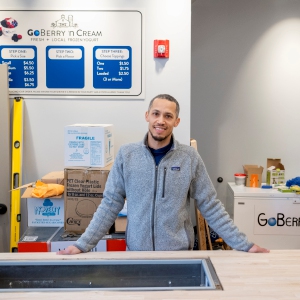 Here come the sweetness: Four new businesses prepping to open in downtown Northampton
Here come the sweetness: Four new businesses prepping to open in downtown Northampton
 Local ‘Hands Off!’ standouts planned as part of national effort
Local ‘Hands Off!’ standouts planned as part of national effort
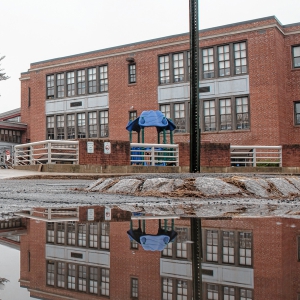 Northampton schools probe staff response to student’s unfulfilled IEP
Northampton schools probe staff response to student’s unfulfilled IEP
 Area property deed transfers, April 4
Area property deed transfers, April 4
 Sabadosa, Velis push for state endometriosis task force to raise awareness about little-known illness
Sabadosa, Velis push for state endometriosis task force to raise awareness about little-known illness
It has not been made official how car manufacturers expect to handle the costs: Will they absorb the price hikes? Will it mean steep prices hikes for buyers? Will it lead to mass layoffs at auto companies? These are just a few of the questions still to be answered as the auto tariffs roll out.
“We are now entering into the first inning of the first game of the season, and we don’t know what Trump has planned for the ninth inning,” said Bob O’Koniewski, executive vice president of the Massachusetts State Automobile Dealers Association. “We have to wait and see how this plays out.”
While delaers brace for the potential tariffs to kick in, car shoppers and sellers at various local dealerships on Monday and Tuesday agreed that the impacts of such a move were unknown until Trump unveils his plan on Wednesday.
As for now, however, dealerships in the area are assuring customers that the current inventory on their lots won’t be subject to an overnight 25% hike, and prices will remain stable for at least the coming weeks, before inventory on lots is swapped out.
David Belliveau, general manager at Northampton Volkswagen on King Street, said it may take four to six weeks to feel the impact of the tariffs. He added that inevitably, “from our perspective, prices are definitely going up.” So much so, he said, he fears the increases will impact affordability.
However, General Manager Chris Peltier of Toyota of Northampton thinks that is too short a window to see impacts.
“As of right now, I am not really playing into the fear factoredness of it,” said Peltier, who said that he stresses to customers that the impacts remain “unknown.”
Trump has said he’s moving ahead with tariffs to regain American manufacturing jobs that have gone overseas in past decades and thereby reinvigorate the U.S. manufacturing workforce. The president on Saturday said he “couldn’t care less” if some car prices go up due to tariffs so long as the auto industry returns to America.
“I hope they raise their prices, because if they do, people are going to buy American-made cars,” he said about foreign car manufacturers in an NBC News interview. “I couldn’t care less because if the prices on foreign cars go up, they’re going to buy American cars.”
Katherine Schmeiser Lande, the chair of Mount Holyoke College’s economics department, gave an economics 101 explanation as to why tariffs won’t work to bring down costs — though they may have 30 years ago.
At that time, the United States hadn’t signed onto NAFTA, which created a free trade zone between the United States, Canada and Mexico. This is what led many companies to relocate to Mexico to access cheaper labor there, and hence make their products available at cheaper prices.
The benefit to consumers? They got to pay less for those products. Now the upside may bring a few jobs back to the U.S., but consumers will be paying more after the tariffs are implemented, said Lande.
But both Belliveau and Peltier say the potential fix is for foreign car companies to bring manufacturing to the U.S.
“Right now, we only have a few vehicles that are manufactured in the U.S., “ said Northampton Volkswagen’s Belliveau. “Vehicles like the Jetta, a big seller, is not made here. So we’re hoping that that gets moved over to the U.S. very quickly,” he said, stressing that the tariffs may shatter the affordability of their vehicles.
Peltier expressed that he has been briefed by the president of both Toyota and Lexus, which both build some models in the U.S. The messages received, he said, have been, “vague at this point, but overall basically a positive message.”
That positivity, he explained, is being driven by the fact that Toyota has invested so much in America over the past decade.
“Toyota is probably the best equipped to handle a situation like this. They’ve got a pretty strong foothold in the United States already, and they’ve invested tens of billions of dollars into the United States already, over the past decade or so,” he said.
Despite the positive state of mind Toyota seems to be in, Peltier commented that his customers have been more on edge about the potential price hikes.
“I’ve heard the word tariffs more in the past week than I have in my entire life. Whether it’s a phone conversation or someone walking in or an email — it’s on people’s minds. I think it’s maybe not so much of a motivator for people who are not in the market.”
He added, “I think it’s more a motivator for people who are maybe in the market but maybe weren’t planning on buying until the summer or the fall. They just kind of move their timeline up. Like ‘this pushed me over the edge because I don’t want to be stuck paying 25% extra.’ That’s the mindset.”
This observation was consistent with what many shoppers in showrooms were saying this week. Most said their primary reason for shopping for a car is, to no one’s surprise, because they need one. However, most said the pending tariffs did play a factor in deciding to hustle up and buy.
The Kingleys are among those hurrying, and said the process has introduced them to the level of confusion that is being felt by the entire auto industry.
“Some are saying that the dealerships will eat the cost of the tariff increase at least temporarily. Other are saying it doesn’t impact them, because their cars are manufactured here … so it’s kind of all over the map,” said Gene Kingsley.
At Country Nissan in Hadley, Berger was buying a car for her niece. Similarly, she said that although she needs the car, she is also feeling the pressure to have it done as soon as possible before the threat of having to pay a quarter more than the car is worth, she said.
“We are trying to keep it in a certain range and are worried the tariffs will severely impact the affordability,” Berger said.
But even Peltier, who has not been fretting over the situation, said that parts will certainly be impacted by the tariffs.
“If you take a car, you know, it’s not just built in Japan. It’s not just built in Mexico or Canada or the United States. There’s so much that goes into it,” he said. “There’s between 30 and 50 computers in new models. And of those computers, who’s making a knob for this one, making the button for this one, or who’s making the clip for that one.”
His assessment is in line with a comment made by Nagurney, who said that, “Every single car has foreign-made parts,” adding that the United States “can’t build new plants overnight.”
To add to the disruption, Nagurney is concerned about the implications for the global economy, especially what it will mean for U.S. foreign relations.
Most countries see the tariffs as destructive, including Canada, France, and even Japan and South Korea, with many countries already announcing their own retaliatory tariffs.
“This is not good. We need to keep our friends,” said Nagurney.
Samuel Gelinas can be reached at sgelinas@gazettenet.com. Reporting from the Associated Press was used in this story.

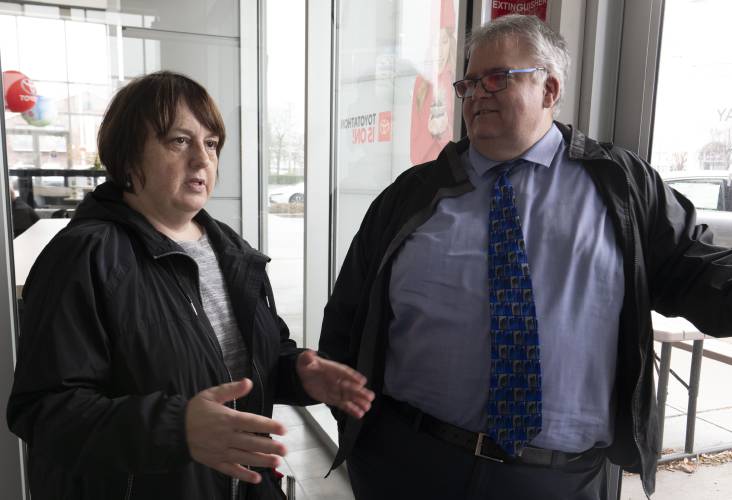
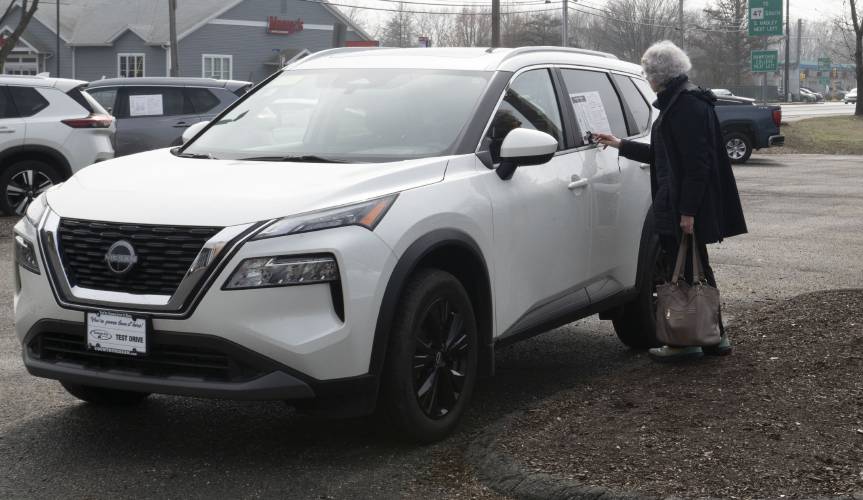
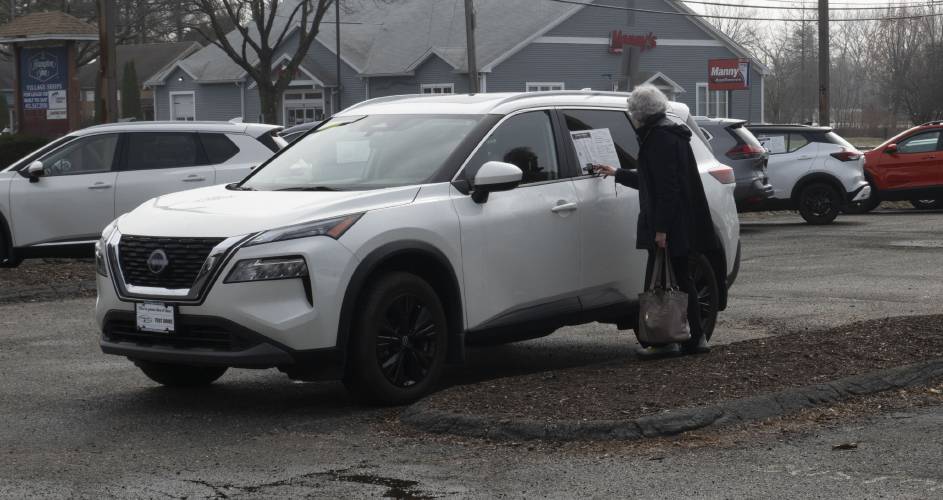





 A father’s dream to be the best: Twelve men graduate from Nurturing Fathers program
A father’s dream to be the best: Twelve men graduate from Nurturing Fathers program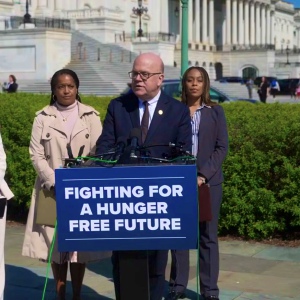 McGovern co-sponsors bill that aims to stop ‘backdoor’ cuts to SNAP benefits
McGovern co-sponsors bill that aims to stop ‘backdoor’ cuts to SNAP benefits Hatfield Select Board removes elected Housing Authority member
Hatfield Select Board removes elected Housing Authority member Final interviews set for Granby school superintendent candidates
Final interviews set for Granby school superintendent candidates
